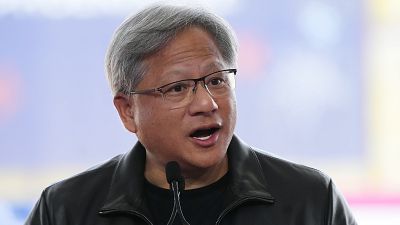The “gigafactory” in northern France will be among the first plants in Europe to make batteries for electric cars, a sector traditionally dominated by China.
France is inaugurating its first factory to produce batteries for electric cars, as part of the government’s ambitions to “reindustrialise” the country and catch up with Chinese manufacturers in a booming industry.
The plant opening in Billy-Berclau, in the north of France, is owned by Automotive Cells Company, a partnership between French energy giant TotalEnergies, Mercedes-Benz and Stellantis, which owns a range of brands including Peugeot, Fiat and Chrysler.
The companies’ CEOs and France’s Economy Minister Bruno Le Maire, Energy Transition Minister Agnès Pannier-Runacher, Industry Minister Roland Lescure, and Italian and German officials were all set to attend the inauguration of the “gigafactory,” which will be 640 metres long and 100 metres wide.
“This is the first time in decades that an industrial sector has been recreated in France from almost nothing,” said the French economy ministry.
Huge connected machines will flatten, cut and stack sheets of aluminium coated with a paste of rare minerals – the basis of these battery cells – which will then be assembled and filled with electrolytes by workers in white coats in immaculate rooms.
Production is due to start in the summer, with the first sales scheduled for the end of 2023.
Car industry shift
The inauguration symbolises the car industry’s forced shift towards electrification, with a great deal of public support, in preparation for the EU’s ban on sales of new petrol and diesel cars from 2035.
The ACC group, which sees itself as a “battery Airbus,” will be one of the first to produce in Europe.
It will be followed by four other battery plants in France, all located in the Hauts-de-France region, where an ecosystem is emerging that elected representatives and industrialists have dubbed “Battery Valley”- the electric car industry’s answer to Silicon Valley.
The Sino-Japanese group AESC-Envision, near Douai (Nord), plans to supply Renault Electricity from early 2025, Grenoble-based start-up Verkor will produce from mid-2025 in Dunkirk, and Taiwanese group ProLogium is aiming to start production at the end of 2026 for its first plant abroad.
In all, around 50 projects of this type have been announced across Europe in recent years.
The stakes are high: Europe doesn’t want to become overly dependent on Asian suppliers, particularly Chinese, which are 10 to 20 years ahead in this field.
The French government has set itself the target of producing 2 million electric vehicles a year in France by 2030, as Bercy points out, estimating that ACC alone should produce enough to equip 500,000 vehicles a year by then.
Uphill battle
France is aiming to supply its automotive industry with enough batteries assembled in the country by 2027 – and even export French batteries thereafter.
But it is still handicapped by the price of its energy, compared with China and the United States, which heavily subsidise this industry.
As a sign of public support, the group has received more than €1.2 billion in public funding, including €845 million in French aid, out of a total investment of €7 billion in the various ACC sites, including the Billy-Berclau plant, a research centre in Charente and two future plants planned in Germany and Italy.
But the lithium-ion technology used on ACC’s first line still requires strategic metals whose supply chain is largely dominated by China – lithium, nickel and manganese.
The transition also represents a major social challenge, with the predicted loss of tens of thousands of jobs according to trade unions and employers’ organisations, while Battery Valley needs to recruit and train more than 20,000 people in just a few years.

















